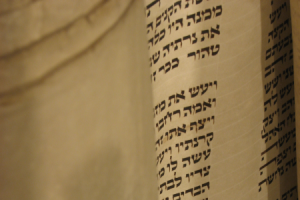
The purpose of our lives is to reach a state of perfection by harmoniously unifying with humanity in a single integral system—our soul. This state is called “the revelation of the Creator to the created beings in this world,”* and it is attainable while we are alive in our world.
The Bible was given to us as a means by which we can correct ourselves in order to unify with others, i.e., to ultimately reach a level of “And you shall love your neighbor as yourself” (Leviticus 19:18). The word for “Torah” in Hebrew connects to two words, “Hora’ah” (“teaching”) and “Ohr” (“light”). That is, the Torah is a means by which we draw light onto ourselves, which corrects our intention from self-benefit at the expense of others to bestowal and love for others.
Spiritual growth takes place by rising above our inborn egoistic nature to increasing positive connection and unification with others. In the Bible, such ascent is described by degrees called holidays, weekdays, the Sabbath, Rosh Chodesh (the beginning of the month), the nations of the world, Levites, Cohens, Israelites, and so on.
It is important to understand that the Bible does not describe corporeal phenomena, but spiritual degrees, structures, and processes, which are ultimately degrees of love, bestowal, and unification. The correct study of the Bible should draw upon us the light that brings us closer to attaining those degrees. When we attain the spiritual degrees described in the Bible, we can perceive what it means to be on the degrees of King David, King Solomon, Moses, Aaron, Joseph, Jacob, and so on.
The more we grow spiritually, the more we feel that we elevate from the lowest degrees to the highest, and encounter several states on the path. In other words, the more we unite among each other, and with humanity as a whole, the more we experience the various depictions contained in the Bible. Such spiritual growth takes place until we integrate the entire world inside ourselves and become “human” in the fullest sense of the term (i.e, “human” [“Adam” in Hebrew] from the phrase “similar to the most high” [“Adameh le Elyon” in Hebrew]), which means that we resemble the Creator.
We should thus perceive what is contained in the Bible as degrees of our spiritual growth that we undergo until we reach the complete harmony, perfection, and eternity of our soul—in equivalence with the Creator.
* See section “What the Wisdom Is About” in “The Essence of the Wisdom of Kabbalah” by Kabbalist Yehuda Ashlag (Baal HaSulam).
Featured in Quora